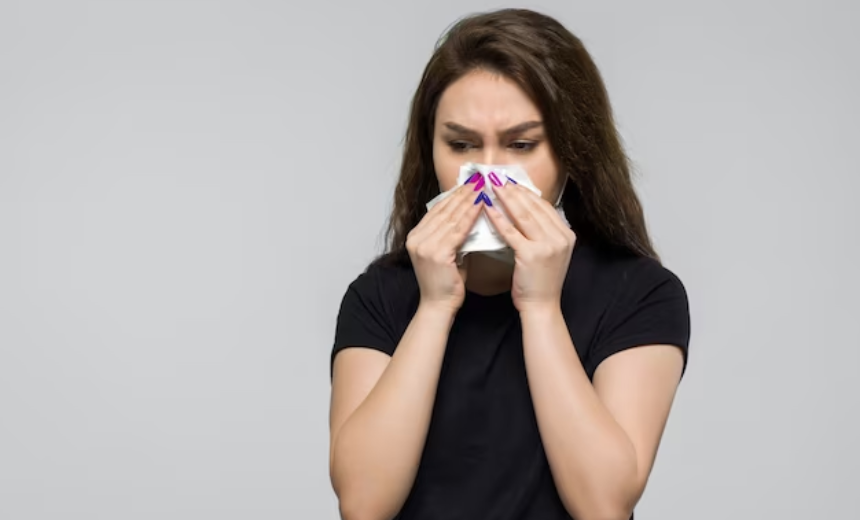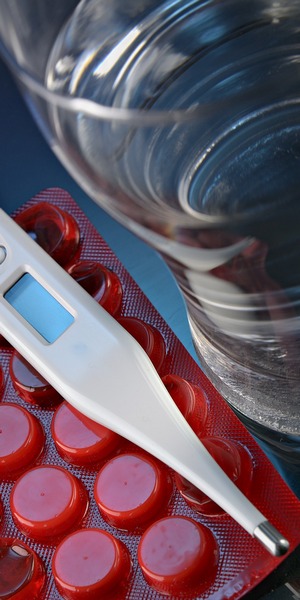Sneezing and Bloody Noses: Causes and Treatments

Sneezing and bloody noses are common occurrences that can catch us off guard. We’ve all been there: a sudden sneeze attack or an unexpected nosebleed. But what causes these inconvenient interruptions to our daily lives, and how can we effectively treat and prevent them? In this comprehensive guide, we’ll delve deep into the world of sneezing and bloody noses, uncovering the underlying causes, and providing practical treatments to keep these annoyances at bay.
The Anatomy of a Sneeze
The Sneeze Reflex
Sneezing is a natural bodily response to various irritants. When an irritant, such as dust or pollen, enters the nasal passages, it triggers the sneeze reflex. This reflex involves a complex coordination of muscles and nerves, resulting in a sudden and forceful expulsion of air from the lungs through the mouth and nose.
Why Do We Sneeze?
Understanding the reasons behind sneezing is essential. We explore the common triggers and the science behind this intriguing reflex.
Common Triggers
- Allergies;
- Irritants;
- Infections.
The Science Behind Sneezing
- Neural Pathways;
- Muscular Involvement.
Dealing with Sneezing
Allergies: The Culprit Behind Frequent Sneezing
Allergies are a prevalent cause of sneezing. When allergens like pollen, pet dander, or dust mites come into contact with the nasal passages, they can lead to persistent sneezing.
Identifying Allergies
Understanding your specific allergies is crucial for effective management. We’ll explore methods for pinpointing your allergens and discuss allergy testing.
Self-Assessment
- Symptoms to Watch For;
- Keeping a Symptom Journal.
Professional Allergy Testing
- Skin Prick Tests;
- Blood Tests.
Preventing Allergic Sneezing
Once you know your triggers, we’ll delve into strategies for reducing exposure and keeping sneezing at bay.
Environmental Modifications
- Allergen-Proofing Your Home;
- Pollen Forecast Apps.
Medications and Treatments
- Antihistamines;
- Allergy Shots.
Bloody Noses: Causes and Cures
Understanding Epistaxis
Nosebleeds, or epistaxis, can be a startling and sometimes messy experience. Let’s explore the common causes and effective treatments for this issue.
Common Causes of Nosebleeds
Nosebleeds can occur for various reasons, from dry air to underlying medical conditions. We’ll break down the most frequent culprits.
Dry Air and Nasal Irritation
- Humidifiers and Nasal Saline Sprays;
- Avoiding Nasal Trauma.
Medical Conditions
- Hypertension;
- Blood Disorders.

Treating and Preventing Nosebleeds
Discover the steps to stop a nosebleed when it happens and reduce the chances of it recurring.
First Aid for Nosebleeds
- Pinch and Tilt Technique;
- Nasal Packing.
Preventive Measures
- Humidification;
- Lifestyle Adjustments.
Preventing Sneezing and Nosebleeds
Prevention is often the best medicine. Let’s delve into practical steps you can take to minimize the occurrence of sneezing and nosebleeds in your daily life.
1. Maintaining Indoor Air Quality
Use Air Purifiers: Invest in high-quality air purifiers that can effectively remove allergens and irritants from your indoor environment.
Regular Ventilation: Ensure proper ventilation in your home by opening windows and using exhaust fans. This helps reduce indoor air pollution.
2. Hydration and Nasal Care
Stay Hydrated: Drink an adequate amount of water daily to keep your nasal passages moist. Dry nasal passages are more prone to nosebleeds.
Nasal Saline Sprays: Use saline nasal sprays to keep your nasal passages hydrated and free from irritants.
3. Allergen Management
Allergen-Proof Bedding: Invest in allergen-proof mattress and pillow covers to reduce exposure to dust mites.
Regular Cleaning: Dust and vacuum your home regularly, and wash your bedding and curtains frequently to minimize allergen buildup.
4. Dietary Considerations
Anti-Inflammatory Foods: Incorporate foods rich in antioxidants and anti-inflammatory properties into your diet. These can help reduce the severity of allergies.
Hydration: Maintain a well-hydrated body by drinking water and consuming hydrating foods like fruits and vegetables.

Dealing with Sudden Sneezing and Nosebleeds: First Aid
Sudden Sneezing
If you find yourself in a sneezing fit, there are immediate actions you can take to alleviate the discomfort:
- Tissue or Elbow: Cover your mouth and nose with a tissue or the inside of your elbow to prevent the spread of germs;
- Avoid Touching Face: Refrain from touching your face, especially your eyes, nose, and mouth, to reduce the risk of infection;
- Stay Hydrated: Sip water to soothe your throat and keep your mucous membranes moist;
- Over-the-Counter Remedies: Consider over-the-counter antihistamines for quick relief if allergies are the cause.
Sudden Nosebleeds
Nosebleeds can be unsettling but are often manageable with these steps:
- Pinch and Lean: Pinch your nostrils together and lean forward slightly to prevent blood from flowing down your throat;
- Avoid Tilting Back: Contrary to popular belief, do not tilt your head back. This can lead to blood entering your throat and stomach;
- Apply Ice: Placing an ice pack on your nose can help constrict blood vessels and reduce bleeding;
- Seek Medical Attention: If the bleeding doesn’t stop after 20 minutes or if nosebleeds occur frequently, consult a healthcare professional.
Tables: Allergens and Their Impact
To better understand common allergens and their impact on sneezing, let’s take a closer look at the most prevalent culprits:
Allergen Common Sources Impact on Sneezing Pollen Trees, grasses, weeds Seasonal allergies Dust Mites Bedding, upholstery, carpets Indoor allergies Pet Dander Cats, dogs, other pets Year-round allergies Mold Spores Damp environments, indoor areas Indoor allergies
Comparing Treatments
When it comes to treating sneezing and nosebleeds, various options are available. Let’s compare the effectiveness and considerations for each:
Treatment Effectiveness Considerations Antihistamines Effective for allergies May cause drowsiness Nasal Saline Sprays Moisturize nasal passages Temporary relief Allergy Shots Long-term allergy management Requires commitment to the regimen Humidifiers Improve indoor air quality Regular maintenance and cleaning Medication for Nosebleeds Quick relief Consult a healthcare professional for severe cases
Conclusion
In this comprehensive guide, we’ve dived deep into the world of sneezing and bloody noses. Armed with knowledge about their causes and treatments, you can now effectively manage these common issues. Remember that understanding your body’s signals is the first step in preventing and alleviating discomfort.








